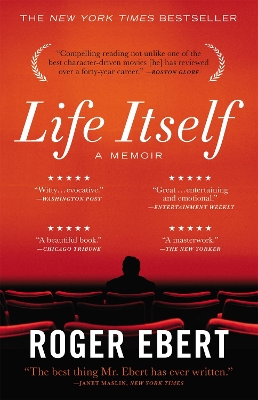
gmcgregor
Life Itself is structured loosely chronologically, beginning with Ebert's family history and going through to when he was near the end of his life and knew it. The first few chapters, which detail how his ancestors came to the United States and his parents' upbringings as well as his own early years, are probably the weakest. While most of us are interested in these details for ourselves and sometimes our loved ones, reading about someone else's is not exactly captivating stuff. Once Ebert gets to his own life, though, the book really finds its footing and takes off. He recounts his life with insight but largely without excess sentimentality: his father's early death and his mother's alcoholism, his experiences on the college paper at the University of Illinois, his journalism career, his international travel, his own alcoholism, the joy he found with his wife Chaz, his relationship with Gene Siskel, his meetings with prominent actors and directors, and his own insistence on an aggressive course of cancer treatment that likely lost him his jaw and ability to speak. He clearly knew that this book was his last chance to put his own story out there and it's obvious that he didn't want to squander the opportunity. Given that he spent his final years in a painful and uncomfortable situation, it's remarkable how little bitterness his writing contains. Instead, he uses his last testament to to reflect on a full life, with all the moments of joy and sorrow it contained.
If you're thinking about reading this book, you're probably already interested in Roger Ebert and his writing. But if you haven't, I recommend going to his blog (still online) and browsing around a little. If you like what you find and enjoy autobiography/memoir style books, this will likely be a win for you. If that's not something that intrigues you, you may appreciate the writing but find it a largely pointless exercise to read. For me, I found it moving and a likely future re-read, but I could completely understand if it's not for everyone.
